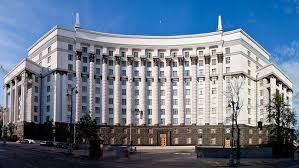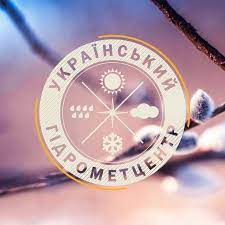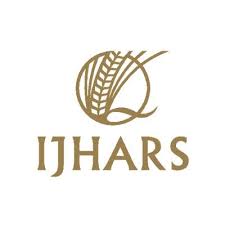
Ukraine’s Cabinet of Ministers is considering raising electricity tariffs in the wake of Russia’s new attacks on the energy sector, Energy Minister Herman Galushchenko said in an interview with Bloomberg.
“Depending on the situation in July and August, we will ask people to save as much as possible. The Russians will not be able to cause a repeat of the blackouts of 2022 and 2023. Even in the event of huge losses, we will have a basic generation that will cover 30% to 50% of our needs,” the minister said.
At the same time, Galushchenko did not rule out an increase in electricity tariffs for households and said that the government is exploring various ways to finance the repair of its energy assets.
“Today the situation is even more complicated than last year, as we have lost a lot of hydropower production and are forced to carry out scheduled repairs of nuclear power units,” he said.
The minister emphasized that Russia’s bombing of Ukrainian energy facilities in recent weeks was more extensive and better planned than the attacks of the previous two years, disabling generating capacity and limiting electricity supplies. As a result, restoring equipment and protecting the power grid have become key priorities for the government, although it is struggling to assess the extent of the damage.
“The destruction was extensive – in power generation and transmission. The situation is complicated. We still do not understand the extent of the damage, as many facilities are still in ruins and we cannot get to them,” explained Galushchenko.
In addition, in the spring of 2024, thermal and hydroelectric power plants became the main targets of Russian strikes. These attacks threaten not only electricity losses but also environmental disasters, Galushchenko said.
“Attacks on hydroelectric power plants are terrorist acts and war crimes, as they affect not only energy production but also the operation of dams on rivers,” the minister said.
Russia’s goal is to destroy Ukraine’s economy, Galushchenko said, adding that more damage to the power system would make it harder to overcome this summer’s consumption peaks.
“We will definitely communicate with people. Everyone wants to live comfortably, but we have to take into account the fact that there are restrictions now,” the minister concluded.
Bloomberg, CABINET OF MINISTERS OF UKRAINE, ELECTRICITY, Herman Galushchenko, tariff increase

On Sunday, April 7, at night in most of the northern, central and southern regions of Ukraine are expected small, in Kirovograd, Odessa and Mykolayiv regions moderate rains, according to Ukrhydrometcenter.
In the rest of the territory, in the afternoon in Ukraine without significant precipitation.
The wind is predominantly north-westerly, 5-10 m/s.
The temperature at night 4-9° of heat, during the day 14-19°, in Transcarpathia up to 23°.
In Kiev, light rain at night, without significant precipitation during the day. The wind is northwest, 5-10 m/s. The temperature at night is 7-9° of heat, during the day 16-18°.
According to the Central Geophysical Observatory named after Boris Sreznevsky. Borys Sreznevsky, the highest temperature during the day on April 7 in Kiev was recorded in 1975, it was 26.5 °, the lowest at night – 5.8 ° frost in 1929.
On Monday, April 8, in Ukraine without precipitation, wind of variable directions, 3-8 m/s.
The temperature at night 5-10° warm, during the day 17-22°.
In Kiev without precipitation, wind of variable directions, 3-5 m/s. The temperature at night is 8-10° of heat, during the day 20-22°.

The volume of shares outstanding globally is shrinking at the fastest pace in 25 years as the number of offerings falls due to economic and geopolitical uncertainty while companies continue to buy back significant amounts of their securities, writes the Financial Times.
Net volume of publicly traded shares has already fallen by $120 billion this year, compared with $40 billion for the full year 2023, according to JPMorgan. The decline marks the third consecutive year of decline, which hasn’t happened since the settlement began in 1999.
According to the bank, the scale of buyback programs this year is comparable to their volumes in the previous three years. By December, according to forecasts, the total amount of buybacks could reach $1.2 trillion.
At the same time, expectations for IPOs and other equity offerings have not yet been met, the article notes.
The two trends reflect “ongoing uncertainty” among companies around the world, said Nikolaos Panigirtzoglou of JPMorgan.
Stock offerings were previously expected to increase this year as investors became more confident that the U.S. (the world’s largest stock market) could avoid an economic recession. But lingering fears that inflation could accelerate again due to strong economic growth mean that “it hasn’t really happened,” Panigirtzoglu said. “It shows that some people don’t think the worst is behind them,” he added.
Last November, analysts at JPMorgan predicted the stock market would grow by $360 billion in 2024 thanks to IPOs of new companies and buyback reductions.
Since 2000, the number of listed companies in the US has fallen from more than 7,000 to less than 4,000, according to index provider Wilshire. A similar trend has been seen in Europe and the UK.

Kyivstar, the largest electronic communications operator, and SHERIFF, a holding of security companies, including SHERIFF Demining, which is a certified mine action operator, have signed a memorandum of cooperation.
Ukraine is currently the most mined country in the world. According to the State Emergency Service, about 175 thousand square kilometers of territory are contaminated with mines and unexploded ordnance. That is why Kyivstar and SHERIFF Demining are starting to work on a technology for humanitarian demining operators.
The companies will jointly test RTK signal correction services, which will ensure high accuracy of mapping contaminated areas and marking explosive objects.
“Helping to rebuild the country is an important mission not only for Kyivstar, but also for the entire Ukrainian business. To speed up the process of demining and rebuilding the country, we are ready to share our experience in implementing the latest technologies that will save lives of Ukrainians,” comments Ilya Poltakov, Kyivstar’s Director of New Business Development. “In particular, for safe demining it is important to ensure the identification of the exact coordinates of mines and the boundaries of contaminated areas. This requires high-quality GNSS equipment with RTK technology support.”
Kyivstar will provide its partners with access to RTK technology and provide recommendations on the selection and use of GNSS receivers. The company’s specialists will also conduct analytical research to test positioning and location technologies.
“We expect that cooperation with Kyivstar will help us to significantly improve the accuracy of explosive ordnance detection and subsequent demining. This will allow us to clean up contaminated areas faster and safer and return them to peaceful life,” commented Yevhen Antypenko, SHERIFF Director.
About Kyivstar
Kyivstar is the largest Ukrainian electronic communications operator, which as of December 2023 served about 24 million mobile subscribers and more than 1.1 million Home Internet subscribers. The company provides services using a wide range of mobile and fixed technologies, including 4G, Big Data, Cloud solutions, RTK cybersecurity services, digital TV, etc. Kyivstar is developing new telecom technologies in Ukraine and plans to invest USD 600 million in this area over the next three years. The company is helping the country overcome the challenges of wartime and has allocated over UAH 1.8 billion over the past two years to support the Armed Forces, subscribers, local communities, and charitable initiatives. The sole shareholder of Kyivstar is the international VEON Group headquartered in the Netherlands. The Group’s shares are listed on the NASDAQ (New York) and Euronext (Amsterdam) stock exchanges. Kyivstar has been operating in Ukraine for more than 25 years and is recognized as the largest taxpayer in the telecom market, the best employer and a socially responsible company.
For more information: pr@kyivstar.net, www.kyivstar.ua
About SHERIFF
SHERIFF Security Holding is a national security operator that has been operating in Ukraine since 2003 and is a leader in the security services market. The company offers the maximum portfolio of services in its field: demining (certified mine action operator), a license to provide collection services and a NBU permit for a cash processing and transfer center, physical security, fire alarm maintenance and monitoring, fire extinguisher recharging, installation of video surveillance systems (including analytical systems) and access control, monitoring and response to burglar alarms, as well as Transfer customer support services, cargo escort, armored taxi, and other services. More than 40,000 clients have entrusted their security to SHERIFF.
For more information: pr@sheriff.com.ua, www.sheriff.com.ua

The Polish Trade Inspectorate for Quality of Agricultural and Food Products (IJHARS) has fined 1.5 million zlotys (about $380,000) to an importing company that imported technical rapeseed and fodder wheat to the Polish market and sold them to a number of local companies as food agricultural products, according to the website of the agency.
It is specified that the trade inspection checked 3,882 tons of rapeseed and revealed the facts of changing the declared purpose from technical to consumer use and the declared country of origin from Ukraine to Poland.
A similar decision on the importing company in the form of imposing a fine was issued for the shipment of 7679 tons of wheat, which also revealed a discrepancy between the purpose of the product and its country of origin.
“Agri-food products intended for technical purposes are generally not produced, stored or transported in accordance with the safety standards required for food products. They are competitively priced because they are not subject to the provisions of food law, and businesses selling them do not incur the costs associated with meeting higher safety standards,” the agency said.
The trade inspectorate, based on the analysis of seized documentation, found that the fined company had put on the market more than 11,500 tons of counterfeit rapeseed and wheat imported from Ukraine and resold the goods to six counterparties from the Pomeranian and Lubelskie voivodships.
“Regardless of the administrative decision issued, the case is also the subject of criminal proceedings under the supervision of the regional prosecutor’s office in Rzeszów,” the office emphasized.
The fine issued to IJHARS in Lublin is not an isolated case, the Trade Inspection Office emphasized. Over the past few months, 6 other companies were fined for similar violations in the supply of wheat, barley, poultry meat and for obstructing inspectors from inspecting cargoes from Ukraine.
According to Przemyslaw Rzodkiewicz, chief inspector of commodity quality of agricultural and food products, inspectors checked more than 82,000 shipments in 2023.
“In order to intensify activities to ensure proper quality and positive image of food products in Poland, we have created a special group in IJHARS to combat food fraud and will soon launch a campaign together with numerous partners to counter misinformation about this category of goods,” he said.

Ukraine’s international reserves in March, according to preliminary estimates of the National Bank of Ukraine (NBU), increased by 18%, or $6.7 billion – to $43 billion 762.7 million.
“Such dynamics is due to significant (more than $9 billion) volumes of receipts from international partners, which exceeded the net sale of currency by the National Bank and the country’s debt payments in foreign currency,” the NBU website explained on Friday.
In addition, the National Bank noted that $9.32 billion was transferred to foreign currency accounts of the Cabinet of Ministers in March, while $363.5 million was paid for servicing and repayment of the state debt.
As the regulator noted, Ukraine also paid $728.5m to the International Monetary Fund.
Among other factors determining the volume of reserves, the NBU named operations on the foreign exchange market: in March, the regulator’s net sale of foreign currency amounted to $1.79bn, which is 18.5% more than in the previous month.
According to balance sheet data, the NBU sold $1.81 bln on the foreign exchange market and bought $25.9 mln in reserves.
The central bank also indicated that the current volume of reserves was positively affected by the revaluation of the value of financial instruments, adding $266.3 million.
“The current volume of international reserves provides funding for 5.8 months of future imports,” the regulator stated.
As reported, the NBU in January reduced the forecast of Ukraine’s international reserves at the end of 2024 to $40.4 billion from $44.7 billion and to $42.1 billion from $45 billion at the end of 2025. Earlier, Experts Club analytical center and Maxim Urakin released a video analysis of how the GDP of the world’s countries has changed in recent years, more detailed video analysis is available here – https://youtu.be/w5fF_GYyrIc?si=BsZmIUERHSBJrO_3 Subscribe to Experts Club YouTube channel here – https://www.youtube.com/@ExpertsClub
EXPERTS CLUB, GDP, International reserves of Ukraine, MACROECONOMICS, NATIONAL BANK OF UKRAINE, NBU, URAKIN